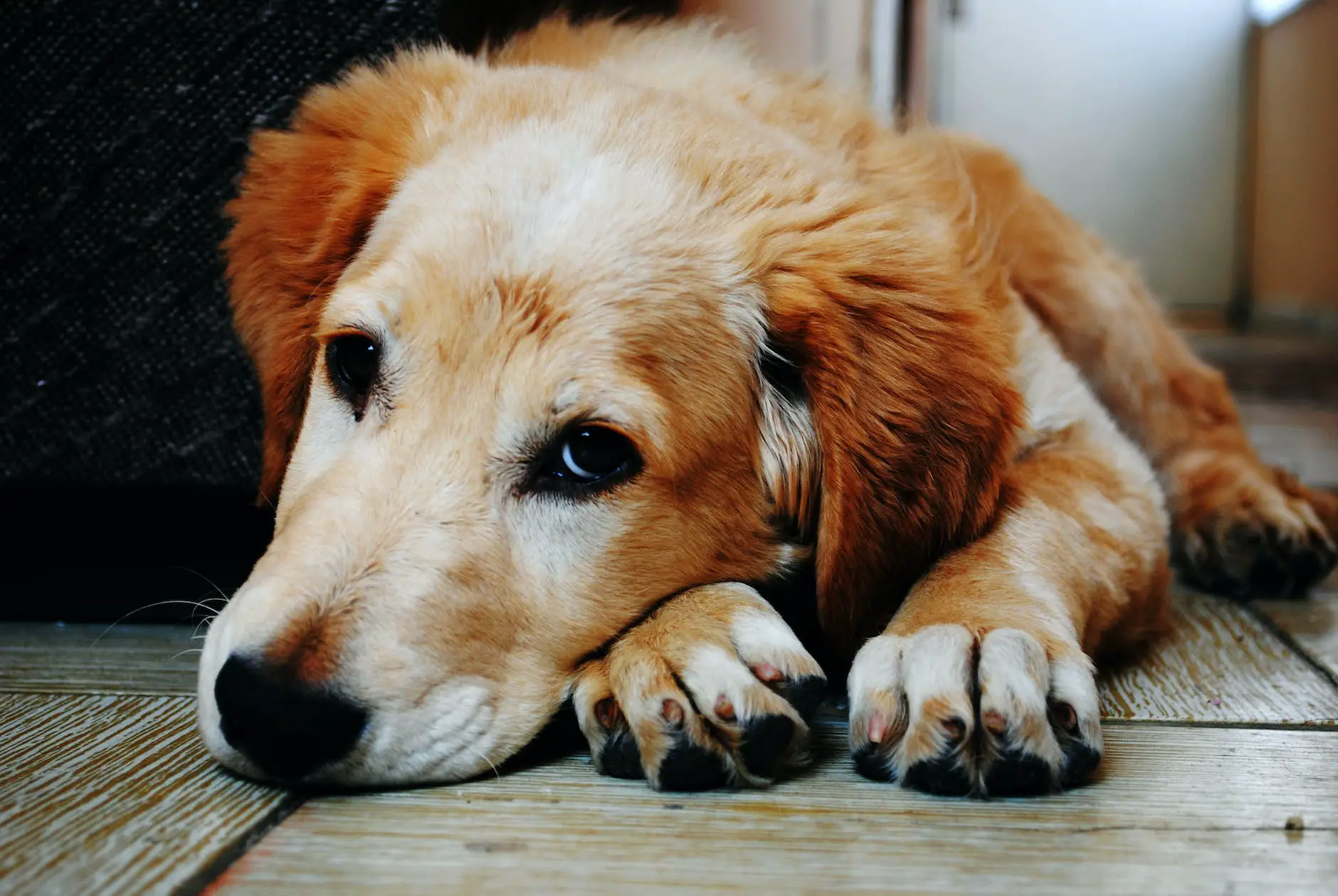The hardest part of being a pet owner is the fact that our dogs don’t live as long as we do. To help a dog live longer, here are some helpful pointers on how to maximize your dog’s health.
Vital Steps To Maximize Your Dog’s Health
Dogs mature and age at much different rates, usually according to size and breed. It is commonly held that dogs live seven years for every year that we humans do.
However, this is only a rough guide for converting and calculating your dog’s age, as dogs grow up very rapidly in their early years and then slow down.
For example, a one-year-old dog is comparable to a 15-year-old kid. At age six, they are comparable to a 40-year-old in human terms.
By 12, it is considered a geriatric dog and is equivalent to an 80-year-old man.
Small dog breeds like a Dachshund can live to the age of 17 or possibly longer, but large dog breeds like a Great Dane generally live to be around nine or 10.
English Bulldogs typically have inherent health issues and only live on average to be 8-10 years.
Most dogs’ average life is about 13 to 14 years. But still, wouldn’t it nice if we could have our dogs live a lot longer.
Through my own research and consulting with reputable vets and animal nutritional experts, there are healthy methods to allow your dog to live a longer and healthier life.
If you have a dog that is already showing signs of slowing down, you can implement five things that help their quality of life and possibly add another 1-2 years of a dog life span to help your dog live longer.
1. Feeding Your Dog The Healthiest Dog Food Along With The Right Amount
Feeding your dog is probably the most important issue to keep your dog healthy and living longer.
Many pet owners not only don’t feed their dog the right type of dog food, and also tend to overfeed them as well.
If your dog becomes overweight this can will make their hearts work harder and can result in congestive heart failure. An overweight dog that starts coughing a lot can be an indication of a lack of oxygen getting to the heart.
“Keeping dogs trim is the one thing we have great evidence for that leads to an increased life span,” says Deborah E. Linder, DVM. She’s head of the Tufts Obesity Clinic for Animals.
What you need to do is make sure your dog gets the proper amount of dog food according to their size and weight.
For Dachshunds, depending on how active they are, it is usually around 40 calories per pound each day. As a general rule miniature dachshunds that weigh 10 pounds, should be fed 3/4 of a cup per day.
If your miniature dachshund weighs 15 pounds, then feed them 1 cup per day.
If you own a standard sized dachshund that weighs 20 pounds, then feed them 1 and 2/3 cups per day. If you own a standard sized dachshund that weight 30 pounds, then feed them 1 and 3/4 cups per day.
Make sure you purchase the best quality dog food. In addition you can add healthy supplements as well.
Just like humans and other animal life forms, dogs require the six basic nutrients for survival: carbohydrates, protein, fats, vitamins, and minerals.
You may give your dog some real food like chicken that is boiled with no added sugars or ingredients. Or perhaps a bit of lean hamburger with no added salt, pepper, or other ingredients. But only small amounts mixed in with their dry dog food.
Green vegetables are good for your dog and adding small amounts of greens can help with providing a well-balanced meal. Even though dogs are carnivorous, greens can be both enjoyable for them as well as providing valuable nutrients.
2. Make Sure You Exercise Your Dog So They Are Active
Make sure you take time each day to walk your dog, plus have play time with them. This will help strengthen and maintain muscles and joint.
How much exercise will depend on the breed of your dog and their age. Many large dogs, like Labs and German Shepherds need a lot of exercise such as walking. They even like swimming as well.
Where smaller dogs won’t need to walk for miles, they still need daily exercise too.
Exercise will help keep from gaining weight and also strengthen their muscles and keep their heart healthy.
Some small dogs can be like couch potatoes, so you need to keep them active by playing with them and walking them.
3. Take Care Of Your Dog’s Teeth and Gums
This is something many dog owners neglect. Just as we humans do, they need to make sure you clean their teeth and gums to avoid getting plaque and bacteria.
If your dog develops plaque this can cause their teeth to rot and lose their teeth. If they do, this can cause extreme health issues that can affect their heart, liver, and kidneys.
There are good dog teeth cleaning products, which include a toothbrush and dog tooth paste as you will want to brush your dog’s teeth each day.
Here are some best dog dental treats you can give your dog to keep their teeth and gums healthy.
4. Yearly Checkups At the Vet
Finding a good vet should be done within the first week of owning your dog. One way is to ask friends or family members who own pets what vet they use. You can also check ratings online.
When you decide upon a vet then go visit and talk to them to see how receptive they are and what basic needs they can give you on your first appointment.
They should make you feel comfortable talking with them. You will want to notice how clean the vet clinic is.
Make sure you take your dog in for regular checkups at the vet. This is to make sure your dog doesn’t have any underlying health issue.
If they detect any issues like cancer or other diseases early it is more likely to be treated successfully.
Also important during this visit is that the vaccines will be updated. This is very important to your dog’s life. And, in some areas, it is required by law to have them done.
5. Your Dog Should Have Minerals and Vitamins
A dog needs minerals, the most important of which are calcium and phosphorus, especially for growing puppies.
You want to make sure your dog’s food contains these important minerals.
If your dog lacks the proper vitamin and minerals, they can have health issues such as either dry or oily skin, stomach issues, weak bones and loss of weight.
Just as we take vitamin and mineral supplements, dogs may need the extra for their optimum health.
Your dog should have joint supplements. Glucosamine and Chrondrotion are ideal supplements to maintain joints. Check out some of the recommended health supplements.
Also, minerals like zinc, is an essential ingredient for skin health status and calcium.
Taurine is another good ingredient for the dog’s nutrition.
These two are amino acids that are vital for a dog’s heart. Many dogs who have heart disease are lacking in both Taurine and L-Carnitine.
A dog needs the important nutrients to maintain health, and if they don’t have the proper nutrients this can shorten their lifespan.
I found that milk thistle is a great natural herb that is beneficial for the liver.
What Foods Should Be Avoided At All Costs
Here is a list of foods dogs should not eat.
Avocados
According to the ASPCA, they mentioned avocados on their list of food hazardous to dog’s health. Avocados have a pit, which if eaten by dogs it can block their digestive tract and cause serious issues. If your dog accidentally eats a small bit of avocado, they may vomit and have diarrhea. And if they eat a lot of it you may need to call your vet.
Grapes
According to the ASPCA, grapes are associated with kidney failure in dogs. It is best to avoid giving grapes to your dachshund or any dog for that matter.
Nuts
Don’t give your dog nuts as their digestive system isn’t able to handle most nuts, especially macadamia as these can be very toxic. If you dachshund happens to eat a few nuts watch for symptoms like vomiting and diarrhea. If they have these symptoms take them to the vet.
Onions and Garlic
The ASPCA warns against these as they can cause damage to a dog’s red blood cells if they eat enough of them. However, if your dachshund gets a hold of a small bit of onion that fell to the floor- they are probably fine. Garlic, however, is much more toxic and avoid giving any to your dog.
Cheese
Dogs tend to love cheese and some cheese might not be harmful. However, a lot of cheeses in the stores are heavily processed with extra chemicals that should be avoided for dogs.
Chocolate
Nearly every dog owner probably knows that a dog should not eat chocolate as it has two harmful chemicals – caffeine and theobromine. These are toxic and definitely are foods dogs should not eat.
Pits and Seeds
Are poisonous so do not give your dachshund any type of seeds or fruit that may contain pits. Raisins are toxic to dogs, so avoid giving any raisins to your dachshund.
Xylitol
Even a small amount of xylitol can cause hypoglycemia (low blood sugar), seizures, liver failure or even death in dogs. One of the most dangerous foods dogs should not eat. Some peanut butter may contain xylitol, so make sure you read the label if you ever give any peanut butter to your dachshund.
Caffeine, Tea, Coffee
Any drink containing caffeine is toxic to dogs. Yeast and Dough can be serious and even be fatal in dogs as it is poisonous.

